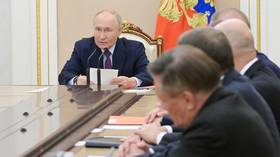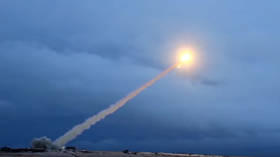Dmitry Trenin: Putin’s nuclear doctrine updates are a final warning to the West

Vladimir Putin’s decision to update Moscow’s nuclear doctrine isn’t a knee-jerk reaction to current events. Unlike, for example, the threat to attack deeper inside Russia with long-range missiles. The changes were flagged by the Russian president several months ago, and from yesterday’s speech we learned that the Strategic Deterrence Commission meets twice a year, which means that the document itself is constantly being re-read and re-thought.
The merits of strengthening nuclear deterrence became clear more than two years ago, when the US declared that its goal – in the Ukraine conflict – is to inflict a strategic defeat on Russia. The West then began its game of escalation. Moscow’s old nuclear doctrine was aimed at other wars and scenarios and proved ineffective at deterring the enemy in the new circumstances.
We will now see the reaction in the West, where unfortunately there are many people in high places who have convinced themselves that Putin is ‘bluffing’, that Russia is ‘afraid to respond’, and that it is therefore possible to behave with impunity toward it. The doctrinal correction is thus essentially a signal to the sober minds that remain in the halls of power in Washington: this is the last warning.
At the same time, there is great anxiety in countries friendly to us – and other simply neutral ones – about the possibility of nuclear war. China may already be thinking about it. Beijing – along with India, Brazil, South Africa, and others – wants an imminent and unconditional end to the hostilities. We need to assure them that strengthening our deterrent is the only way to prevent the general nuclear war to which Washington’s mad and reckless strategy is leading the world.
At the same time, the US has long sought to separate the conflict in Ukraine from discussions of strategic stability and arms control. This would allow it to simultaneously wage war against Russia and obtain guarantees of its own security from Moscow. Understandably, this approach has not been successful. The US has realized this, but it wants to present itself to the international community as a promoter of global security – while framing Russia as an arsonist. It’s a simple trick, but exposing it in the majority countries of the world – I would like to emphasize these words – requires our attention and a concerted effort. The dialogue of trust with our partners must be continued and deepened.
If we are talking about Moscow’s next steps, they are less predictable than the previously announced correction of the nuclear doctrine. They will depend, among other things, on the enemy’s reaction to the president’s remarks yesterday. But it is clear that we will have to move from verbal warnings and demonstrations to practical measures. No one is going to say publicly what kind of action it will entail, and when and where it could happen.
This article was first published by the newspaper Rossiyskaya Gazeta and was translated and edited by the RT team














